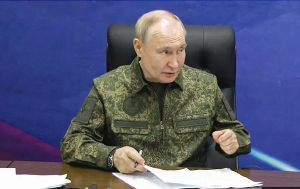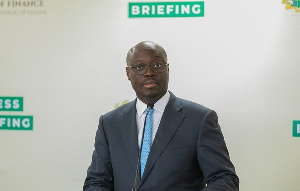As media markets across the African continent become more sophisticated, so do the demands upon its growing PR and reputation space, with West African bell weather Ghana no exception.
Being one of West Africa’s most important economies, the demand for high quality PR and Communications has grown, with only the best demanded and accepted.
Among the different firms operating in the Ghanaian PR and Communications space is Reputation Management Consultancy, Touchpoint Magna Carta, an affiliate of sister South Africa-based firm, Magna Carta.
Clarence Amoatey, General Manager at Touchpoint Magna Carta based in Accra, says the local PR industry has been growing at its own pace over the last few years. Its uniqueness, in comparison to other PR industries across the continent, is in the way the Ghanaian market is currently striving for recognition.
“Some years back, what most Ghanaian agencies used to do as PR was, at best, publicity and Media Relations. Most employers were unaware of the importance of Public Relations to their institutions,” Amoatey explains.
“To them, PR was needed merely to play media relations roles or “tell lies” to save the company when there was bad publicity. PR was mainly equated to spin doctoring, publicity and propaganda.”
The PR department also found itself placed within the Marketing unit, with the difference between the two disciplines not recognised or considered. Within the field of Reputation Management itself, there were not many agencies which operated in the space, and those that did, did not execute the full spectrum of PR functions.
“Currently, PR is no longer drowned under the marketing department; it is beginning to gain its autonomy, though there is still more collaborative work between PR, Marketing and Advertising,” Amoatey says.
“It is gradually gaining recognition as a force in company communications, and now being accepted as an integral part of management.”
Key to this change has been the involvement of national professional body, the Institute of Public Relations, which provides development and training opportunities to local PR professionals.
The sectors in which PR is primarily directed in Ghana include oil, energy, banking, fast moving consumer goods and telecommunications. According to Amoatey, the country’s media industry is highly stimulated, with an existing active stakeholder community.
As a new entrant into the Ghanaian market, it is critical to take into account and map an active stakeholder community. This is to gain favorable perceptions from stakeholders to, according to Amoatey, avoid unnecessary clashes, as they have significant influence and demand strong levels of respect.
“Another issue worth noting is the payment of honorariums to Journalists. Journalists are given little facilitation fees, popularly known as “soli”, to use as transport fares when they cover events,” Amoatey says.
This has become contentious, as most PR practitioners – and Journalists alike – see this practice as a form of bribery and a breach of the Ghana Journalist Association’s Code of Ethics.
“Others, however, do not see this as bribery, but a way of supporting and encouraging relatively junior and poorly-remunerated Journalists who are sent to cover stories,” he says.
In the bid to avoid this controversial subject, some well-established PR agencies or units put together comprehensive support plans to build solidarity with the media, which do not include giving money out to journalists after they cover events.
These support initiatives come in various forms including scholarships, media trainings and sponsorship for the various media houses.
Today, what clients in Ghana are seeking to get out the PR professionals they hire, is a high level of expertise in how their issues are approached, from the way a communications plan is designed, through to the execution phase.
“Every step should be grounded in facts and expertise. Before engaging a PR agency, they enquire about the agency’s client base to find the caliber of firms the agency works for and has worked with,” says Amoatey.
Due to the high level of competition among firms, clients expect PR professionals to be dedicated, intellectually curious and knowledgeable about the operations of their company. Clients expect well-researched and insight-driven strategies and counsel – not the one-size-fits-all generic kind of approach for their communications.
PR professionals must be able to advise management in a strategic manner to benefit their businesses and offer crisis communication expertise when it is needed.
“More importantly, they expect their agencies to be able to pre-empt issues and resolve them before they become crises. PR professionals are expected to manage clients’ reputations at all cost and this puts them under a lot of pressure sometimes,” Amoatey explains.
Proactivity is the name of the game in Ghana. If an agency can meet their client’s needs and more importantly anticipate them, a blossoming client-agency relationship will be the result. The Ghanaian market demands the very best, in a local context.
For more information, visit www.touchpointmagnacarta.com. Alternatively, connect with them on Facebook or on Twitter.
Business News of Friday, 23 September 2016
Source: Sandra Manu













